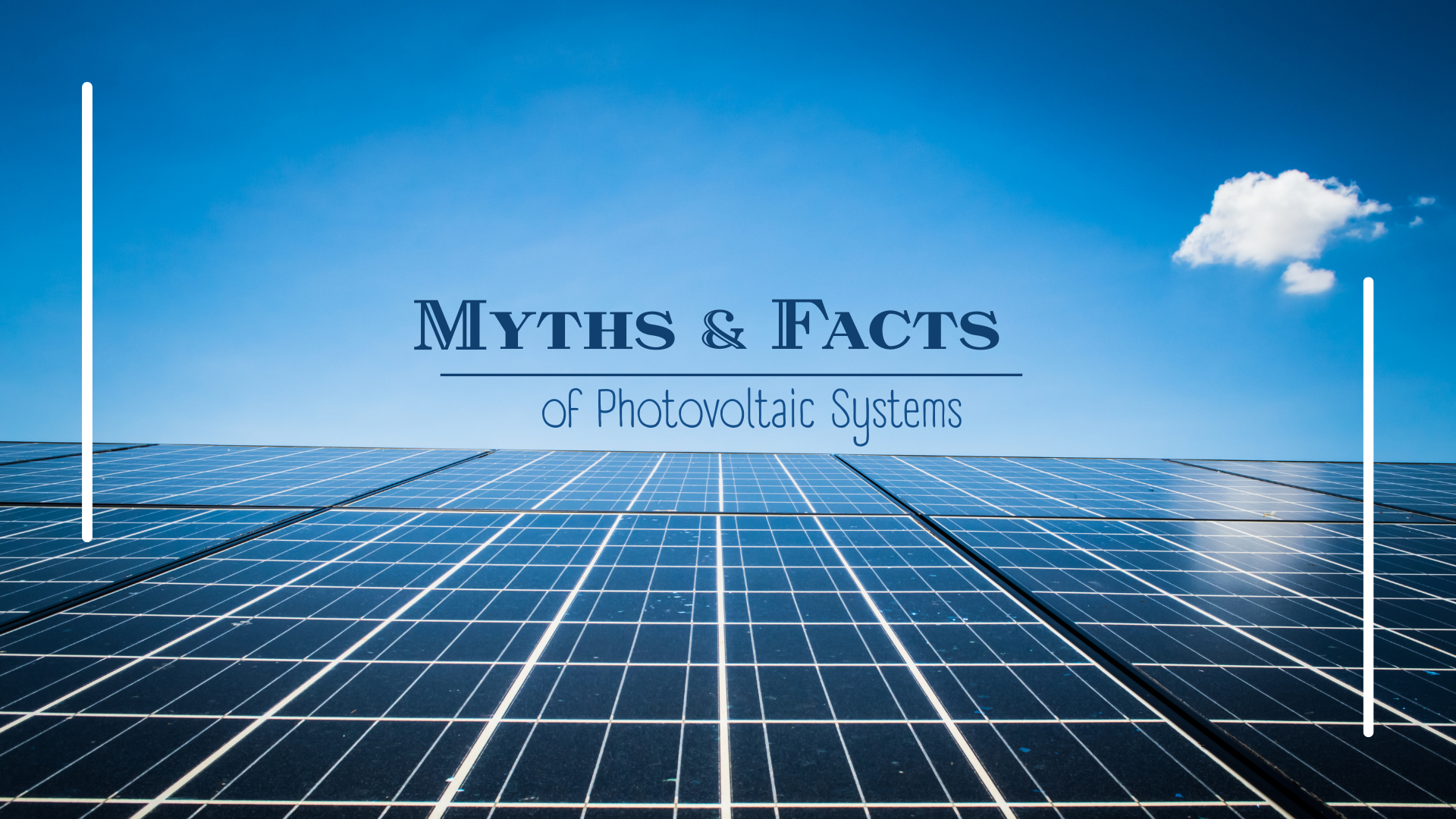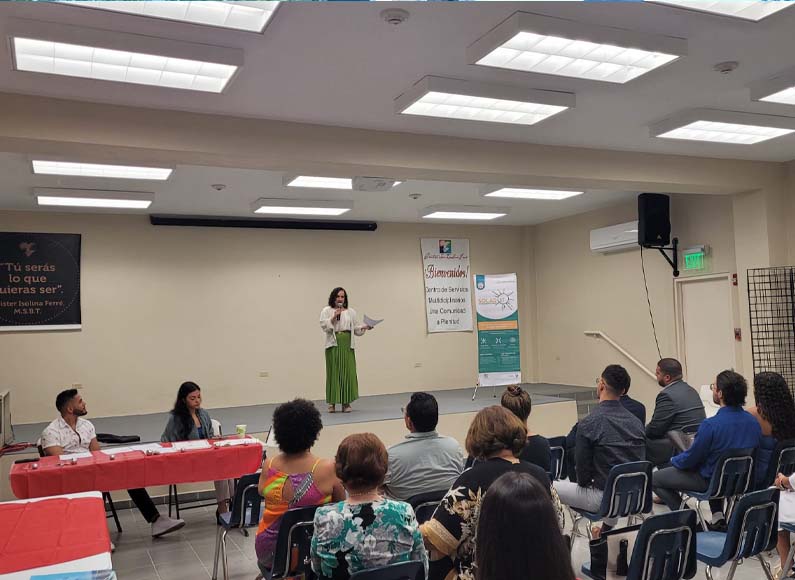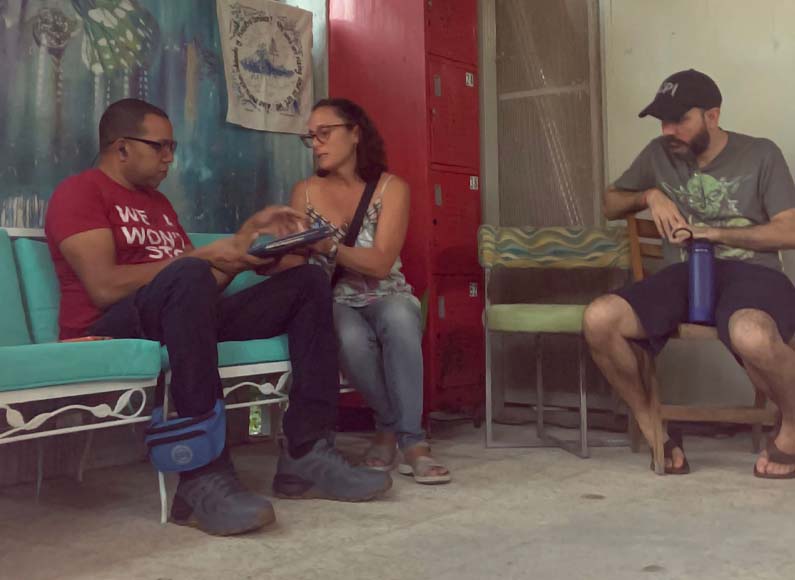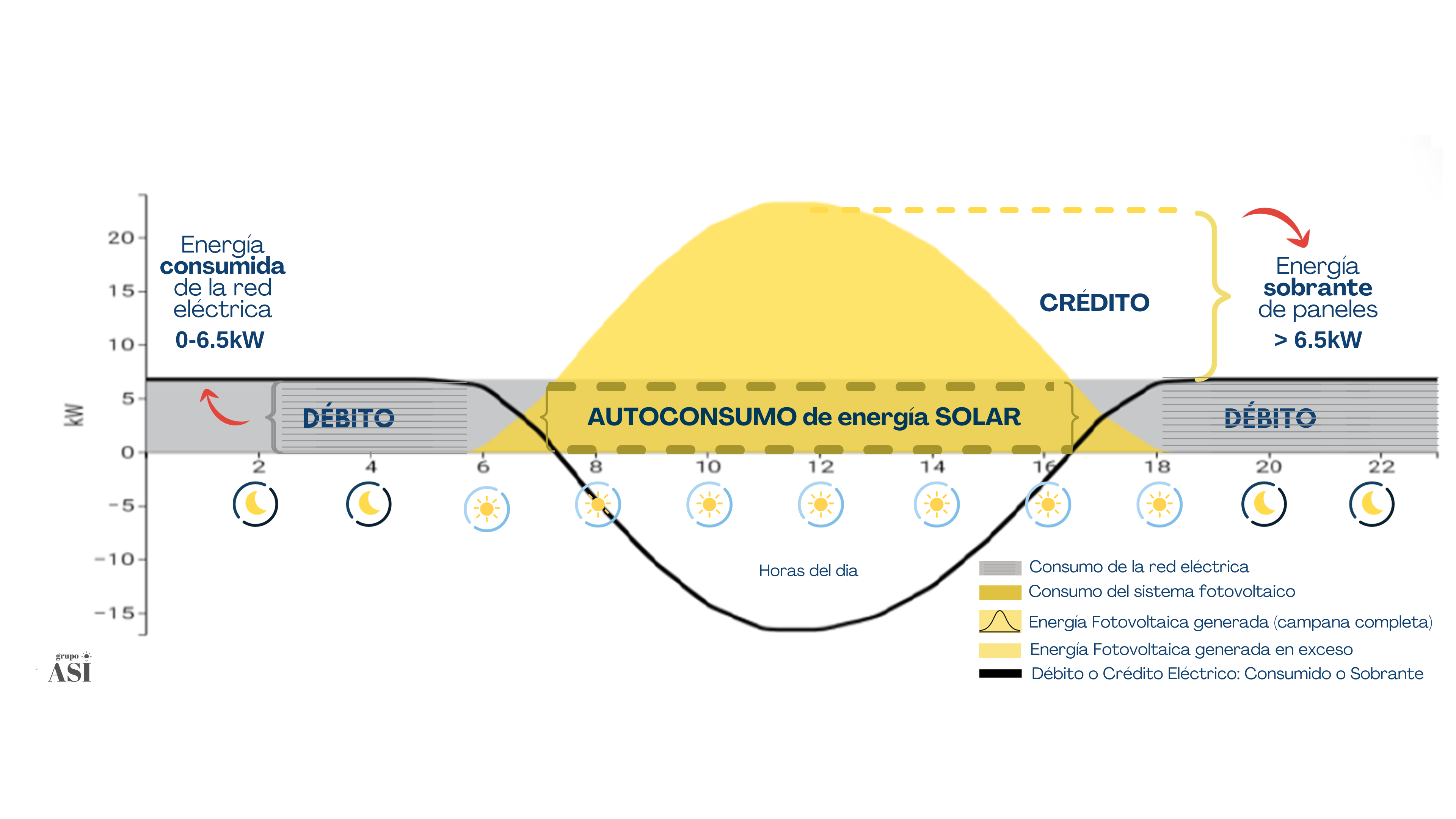In this blog we are going to debunk some of the most common Myths about photovoltaic (PV) energy systems. As this technology becomes more popular and accessible, there has also been a lot of misinformation circulating. It’s important to separate fact from fiction to make informed decisions about adopting solar energy in your home or business.
1. The Myth of Inefficiency:
“Photovoltaic Systems don’t work on cloudy or rainy days.”
Although the energy output of solar panels decreases on cloudy or rainy days, they can still generate electricity. The efficiency of solar panels has improved with technological advances, meaning they can generate more electricity in low-light conditions and on less sunny days because PV systems are being designed to become increasingly efficient and reliable. In addition, with battery storage systems, it is possible to store excess energy generated during the day (peak hours) for use at night or on cloudy days.
2. The Myth of High Cost:
“The Photovoltaic Systems are too Expensive.”
Although the initial installation may require a high investment, the costs of solar panels have decreased significantly in recent years. It is vital to obtain a customized analysis of the specific photovoltaic needs your home or business to acquire the right system size to meet the needs of the home or business. Effective strategies include starting with a system tailored to financial needs and capacity, with potential for future growth. For example, you can start with a smaller system, and without batteries, which are the most expensive components of the system, and expand the system as budget allows. In addition, there are financing options and incentive programs that can help reduce the cost of equipment. In the long run, a PV system can save you money on your energy bill and increase the value of your property.
3. The Myth of Constant Maintenance of Solar Panels:
“Photovoltaic Systems require a lot of maintenance.”
Solar panels are designed to be durable and can last up to 25 years or more. The reality is that solar panels require little maintenance once installed. They require occasional cleaning to remove dust and dirt but have no moving parts that wear easily. Basic maintenance can ensure its efficient operation in the long term. In addition, most systems come with warranties and remote monitoring services to make sure they are working properly.
4. The Myth of Installation Complexity:
“Installing solar panels will damage the roof of my house.”
It is paramount to choose a reliable and experienced solar panel installation company, as they often follow practices that ensure the panels are firmly fastened without causing structural damage. Professional installers are trained to work on different types of roofs and have the knowledge and equipment necessary to install panels without causing damage to structures. In addition, every year industries continue to modernize their support and anchor systems specifically to maintain the integrity of the roof.
5. The Myth of the Ability to Connect Everything at Once:
“You can connect all the appliances you want to the photovoltaic system.”
Although the idea of connecting multiple appliances and equipment to a PV system may sound appealing, it is essential to do so with a clear understanding of energy efficiency concepts and system capacity. Opting for devices with energy-efficient labels and using high-consumption devices outside peak hours (10am-3pm), can help reduce overall consumption. It is not good practice to connect devices that overload system capacity, which could lead to equipment failure or damage. In addition, it is vital to have systems that allow monitoring energy consumption in real time. This will give a clear idea of how much energy is being used and help make adjustments to improve energy efficiency.
6. The Myth of Lack of Durability:
“Photovoltaic Systems don’t have a long life.”
Solar panels have a lifespan of at least 25 years, and some can last up to 40 years. The efficiency goes down 1% per year, that is, after 20 years it works with an efficiency of 80%. In addition, most manufacturers offer performance guarantees during this period. The batteries have a lifespan of 10 years, and it is vital to use them according to your specifications and discharge limits. Discharging a battery beyond specifications shortens battery life significantly. This is why it is important to know how the equipment works and keep it running optimally.
In short, solar PV systems are a cost-effective and reliable option for generating clean, renewable electricity. It is important to research and consult with professionals in the field of solar energy to obtain accurate and up-to-date information about photovoltaic systems before making decisions related to their installation. Don’t let myths discourage you from leveraging this technology in your home or business. Be well informed and make informed decisions to make the most of the benefits of solar energy. In Grupo ASI we provide analysis and design of photovoltaic systems for businesses, farms, and cooperatives completely FREE.
Contact us via email at GrupoASI@fundacionborincana.org





